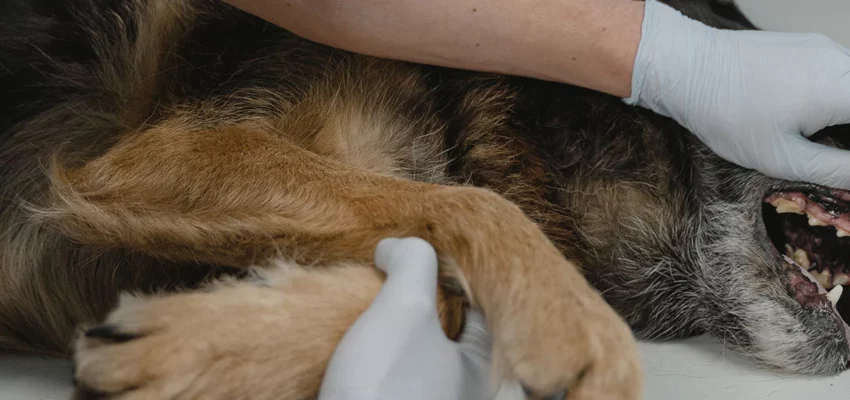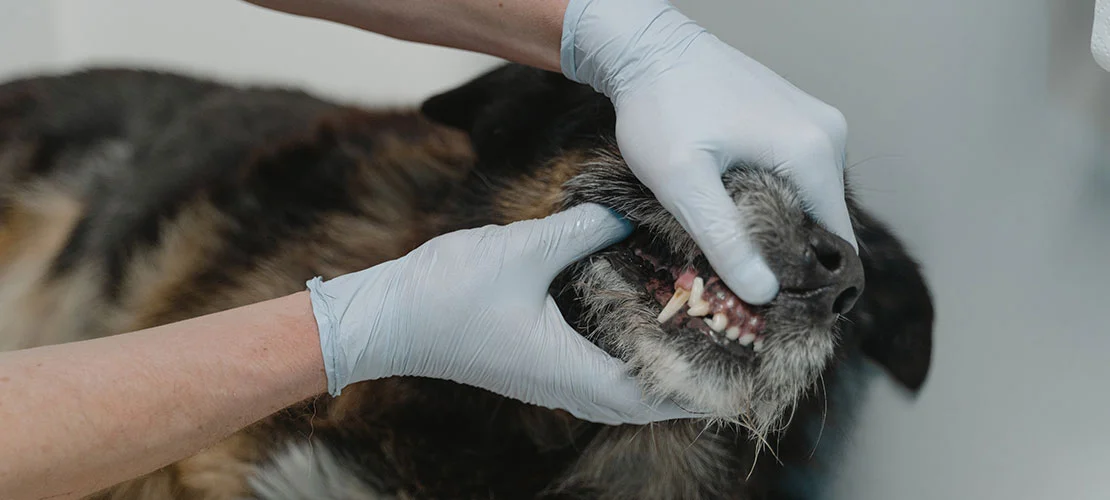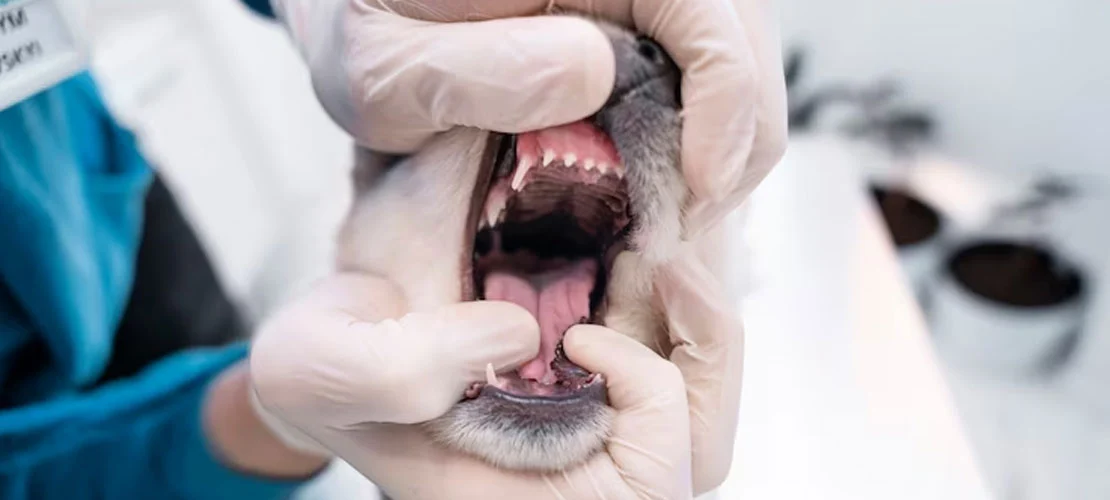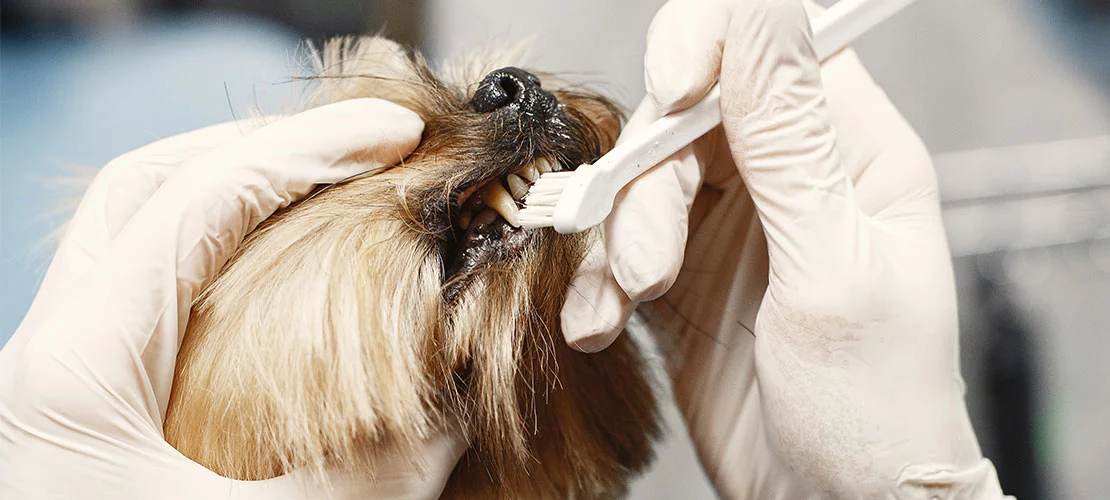
A Sparkling Smile For Your Furry Friend: The Importance Of Professional Dog Dental Cleaning
Is your furry friend suffering from bad breath, tooth decay, or gum disease? Don’t wait any longer to take action. Discover the importance of professional dog dental cleaning and give your beloved companion a sparkling smile they deserve. Say goodbye to dental problems and hello to a healthier, happier dog. Schedule a dog dental cleaning today and experience the transformative power it can have on your pet’s overall well-being.
What is Professional Dog Dental Cleaning?
Professional dog dental cleaning is a crucial aspect of your furry friend’s overall health and well-being. It involves a thorough cleaning of your dog’s teeth and gums to remove plaque, tartar, and bacteria that can lead to various oral health issues. Regular professional dog dental cleanings offer numerous benefits, ensuring your canine companion enjoys a gleaming smile and optimal oral health. Neglecting your dog’s dental hygiene can result in a range of problems, including bad breath, gum disease, and tooth decay. Recognizing the signs and symptoms of poor oral hygiene in dogs is essential for early intervention says Animal Hospital Jacksonville. These may include persistent bad breath, swollen or bleeding gums, difficulty eating or chewing, and loose or missing teeth. To prevent such issues, preventative care must be prioritized. By scheduling regular professional cleanings and maintaining a consistent dental care routine at home, you can help ensure your furry friend enjoys a lifetime of good oral health. Brushing your dog’s teeth regularly, providing dental chews or toys, and offering a balanced diet are simple yet effective ways to maintain oral hygiene. Remember, a healthy mouth means a happy and healthy dog. Give your furry friend the gift of a sparkling smile with professional dog dental cleaning.
Benefits of Regular Professional Dog Dental Cleanings

Regular professional dog dental cleanings offer several benefits for both the pet and their owner. Here are some key advantages of scheduling these cleanings:
- Preventing dental diseases: Just like humans, dogs are prone to dental diseases such as gum disease, periodontitis, and tooth decay. Regular cleanings help remove plaque and tartar buildup, preventing the development of these issues. By addressing dental problems early on, you can save your dog from discomfort and potential health complications.
- Freshening breath: Dogs with poor dental hygiene often have bad breath, often caused by the buildup of bacteria in their mouths. Professional cleanings can effectively eliminate odor-causing bacteria, leading to fresher breath for your furry friend.
- Maintaining overall health: Oral health problems in dogs can have far-reaching effects on their overall well-being. Dental diseases can impact their heart, liver, and kidneys, potentially leading to more severe health issues. By keeping their teeth and gums clean through regular cleanings, you can help maintain their overall health and reduce the risk of systemic problems.
- Extending lifespan: Dogs with poor dental health may have a shorter lifespan compared to those with healthy mouths. Regular cleanings can contribute to a longer and healthier life for your furry companion, allowing them to enjoy more happy years by your side.
- Saving money in the long run: Investing in regular professional cleanings can save you money in the long run. By preventing the development of severe dental diseases, you can avoid costly dental treatments or extractions that may be necessary if the oral health issues are left untreated.
- Reducing risk of tooth loss: Periodontal disease is a common condition in dogs and, if left untreated, can lead to tooth loss. Regular cleanings help remove bacteria and plaque that contribute to gum disease, reducing the risk of tooth loss and preserving your dog’s natural teeth.
Overall, regular professional dog dental cleanings play a crucial role in maintaining your pet’s oral health and overall well-being. By preventing dental diseases, freshening breath, maintaining overall health, extending lifespan, saving money, and reducing the risk of tooth loss, you are providing your furry friend with the best possible care. According to Animal Hospital Jacksonville experts, Consult with your veterinarian to determine the ideal frequency of cleanings based on your dog’s specific needs.
Signs and Symptoms of Poor Oral Hygiene in Dogs

Poor oral hygiene in dogs can lead to various dental issues and health problems. It’s essential for dog owners to recognize the signs and symptoms of poor oral hygiene to address them promptly. Here are some common indicators to watch out for:
- Bad breath: One of the first signs of dental problems in dogs is persistent bad breath, often described as a foul or unpleasant odor. This odor is typically caused by the buildup of bacteria and tartar in the mouth.
- Excessive drooling: Dogs with poor oral hygiene may drool more than usual. The excessive drooling can be a result of pain or discomfort caused by dental issues such as gum disease or tooth decay.
- Swollen or bleeding gums: Inflamed or bleeding gums can indicate gingivitis or periodontal disease in dogs. If you notice redness, swelling, or bleeding along the gumline, it is a sign of an underlying dental problem.
- Yellow or brown deposits on teeth: Tartar or plaque buildup on teeth can appear as yellow or brown deposits. Over time, this buildup hardens into tartar, which can only be removed through professional dental cleanings.
- Pawing at the mouth: Dogs experiencing dental pain may paw at their mouths or exhibit increased sensitivity when their face or mouth is touched. This behavior is a response to discomfort and should be taken seriously.
- Changes in eating habits: Any significant changes in your dog’s eating habits, such as reluctance to eat, chewing only on one side of the mouth, or dropping food while eating, can indicate dental pain or discomfort.
- Loose or missing teeth: Advanced dental diseases or trauma can lead to loose or missing teeth in dogs. If you notice any teeth that are loose, broken, or missing, it is important to have your dog’s mouth examined by a veterinarian.
- Behavioral changes: Dogs in pain or discomfort may exhibit behavioral changes, such as aggression, irritability, or withdrawal. Pay attention to any unusual behaviors that may be linked to oral health problems.
It’s important to note that some dogs may not show obvious signs of dental issues until the condition has progressed significantly. Regular dental check-ups by a veterinarian are crucial to ensure early detection and appropriate treatment of any underlying oral health problems says Race Track Road Animal Hospital. Remember, maintaining good oral hygiene in dogs is essential for their overall health and well-being.
It is recommended to consult with a veterinarian who can perform a thorough dental examination and recommend appropriate treatment options.
The Importance of Preventative Care for Optimal Oral Hygiene

Preventative care is crucial for maintaining optimal oral hygiene in dogs. By taking proactive measures to prevent dental issues, you can ensure your pet’s oral health and overall well-being. Here are some key reasons why preventative care is important:
- Early detection of dental problems: Regular dental check-ups and cleanings enable early detection of dental issues such as gum disease, tooth decay, and oral infections. Detecting these problems early allows for timely intervention and treatment, preventing the progression of more severe conditions.
- Prevention of dental diseases: Just like humans, dogs are susceptible to dental diseases. By implementing preventative measures such as regular teeth brushing, dental-friendly diets, and dental chews, you can reduce the risk of gum disease, periodontitis, and other oral health issues. Prevention is often more effective and less costly than treating advanced dental diseases.
- Improved comfort and quality of life: Dental problems can cause pain, discomfort, and difficulty eating for pets. Regular preventative care, including dental cleanings, helps maintain healthy teeth and gums, ensuring your dog’s comfort and enjoyment of meals and activities.
- Reduction of dental-related health complications: Poor oral hygiene in dogs can lead to health complications beyond the mouth. Bacteria from dental infections can enter the bloodstream and affect other organs, such as the heart, liver, and kidneys. Regular preventative care minimizes the risk of these systemic health issues.
- Longer lifespan: Studies have shown that maintaining good oral hygiene can contribute to a longer lifespan in dogs. By prioritizing preventative care, you can help your furry friend live a healthier and longer life by reducing the risk of dental diseases and associated health problems.
- Cost savings: Preventative dental care can save you money in the long run. By investing in regular dental cleanings, brushing, and other preventive measures, you can avoid costly treatments and procedures that may be necessary to address advanced dental diseases.
- Establishing a routine: Preventative care establishes a consistent oral hygiene routine for your dog. Regular brushing, dental check-ups, and cleanings help them become accustomed to the process, making it easier for you to maintain their dental health in the long term.
Overall, prioritizing preventative care for your dog’s oral hygiene is essential for their overall health and well-being. By detecting dental issues early, preventing dental diseases, improving comfort, reducing health complications, extending lifespan, saving money, and establishing a routine, you can ensure that your furry companion maintains optimal oral health throughout their life. Consult with Veterinarian Jacksonville experts to develop a personalized preventive dental care plan for your dog.
How to Maintain Good Oral Health for Your Furry Friend
Maintaining good oral health for your furry friend requires a combination of at-home care and regular professional dental check-ups. Here are some essential steps to help you keep your dog’s teeth and gums healthy:
- Regular brushing: Brushing your dog’s teeth is one of the most effective ways to remove plaque and prevent tartar buildup. Use a dog-specific toothbrush and toothpaste to gently brush their teeth at least two to three times a week. Start slowly and gradually increase the duration of brushing as your dog becomes more comfortable with the process.
- Dental-friendly diet: Provide a balanced diet that promotes good oral health. Look for dog food that is specifically formulated to support dental health, often labeled as “dental care” or “oral health.” These diets often have special kibble shapes or added ingredients that help clean teeth and reduce plaque buildup.
- Dental chew toys and treats: Offer dental chew toys and treats that are designed to help clean your dog’s teeth. These products are typically made with special textures that help remove plaque and tartar as your dog chews. Be sure to choose appropriate-sized toys or treats that are suitable for your dog’s age and chewing habits.
- Regular dental check-ups: Schedule routine veterinary dental examinations for your dog. During these check-ups, a veterinarian will perform a thorough oral examination, assess the condition of your dog’s teeth and gums, and recommend any necessary treatments or cleanings. Ideally, aim for annual dental check-ups, but your veterinarian may suggest a different frequency based on your dog’s specific needs.
- Professional dental cleanings: In addition to regular check-ups, your veterinarian may recommend professional dental cleanings. These cleanings typically involve scaling to remove tartar and plaque above and below the gumline. They may also include polishing to smooth the tooth surfaces and reduce the likelihood of future plaque buildup. Professional cleanings are usually performed under anesthesia to ensure the safety and comfort of your dog.
- Monitor oral health and signs of problems: Keep an eye out for any signs of dental issues such as bad breath, swollen gums, bleeding, or changes in eating habits. Regularly inspect your dog’s teeth and gums for any abnormalities or signs of discomfort. If you notice anything unusual, consult your veterinarian promptly.
Remember, establishing a regular oral hygiene routine and providing appropriate dental care will go a long way in maintaining your dog’s oral health. Be patient and consistent in your efforts, and always consult with your veterinarian for personalized advice and recommendations says Vets In Jacksonville. With your commitment to good oral hygiene, you can help ensure your furry friend enjoys a healthy and happy smile for years to come.
Conclusion: Give Your Furry Friend the Gift of a Sparkling Smile with Professional Dog Dental Cleaning
Professional dog dental cleaning is a crucial aspect of maintaining your furry friend’s oral health and overall well-being. Throughout this blog article, we have explored the importance of professional dog dental cleanings, the benefits they offer, and the signs of poor oral hygiene in dogs. We have also discussed the significance of preventative care in keeping your dog’s teeth and gums in optimal condition. To wrap up, we cannot stress enough the value of giving your furry friend the gift of a sparkling smile through regular professional dog dental cleaning. These specialized cleanings provide a deep clean that removes plaque and tartar buildup, prevents gum disease, and helps maintain fresh breath. While at-home dental care is essential, professional cleanings are necessary to complement your efforts and ensure a thorough cleaning. By investing in professional dog dental cleaning, you are investing in your dog’s long-term oral health and overall quality of life. So don’t wait any longer – book your furry friend’s next dental cleaning appointment today and give them the gift of a happy, healthy smile.
In conclusion, professional dog dental cleaning is a crucial aspect of your furry friend’s overall well-being. By understanding what it is and the benefits it provides, such as preventing oral diseases and promoting better overall health, you can take proactive steps to maintain good oral hygiene for your beloved pet. Remember, poor oral hygiene can lead to various health issues, so it’s essential to keep an eye out for signs and symptoms. Taking preventative measures, such as regular dental cleanings, can significantly contribute to your dog’s optimal oral hygiene. Give your furry friend the gift of a sparkling smile by prioritizing their dental health with professional dog dental cleaning. Don’t wait any longer – take action now and schedule an appointment today. For more informative blog posts on dog dental care and other pet-related topics, be sure to explore our website and stay informed about all things furry friend. Your dog’s smile will thank you!
If you are a veterinarian looking to improve your online presence, contact YashaaGlobal, A Veterinary SEO Company in Jacksonville, FL. They are a team of experts who can help you achieve your goals.
